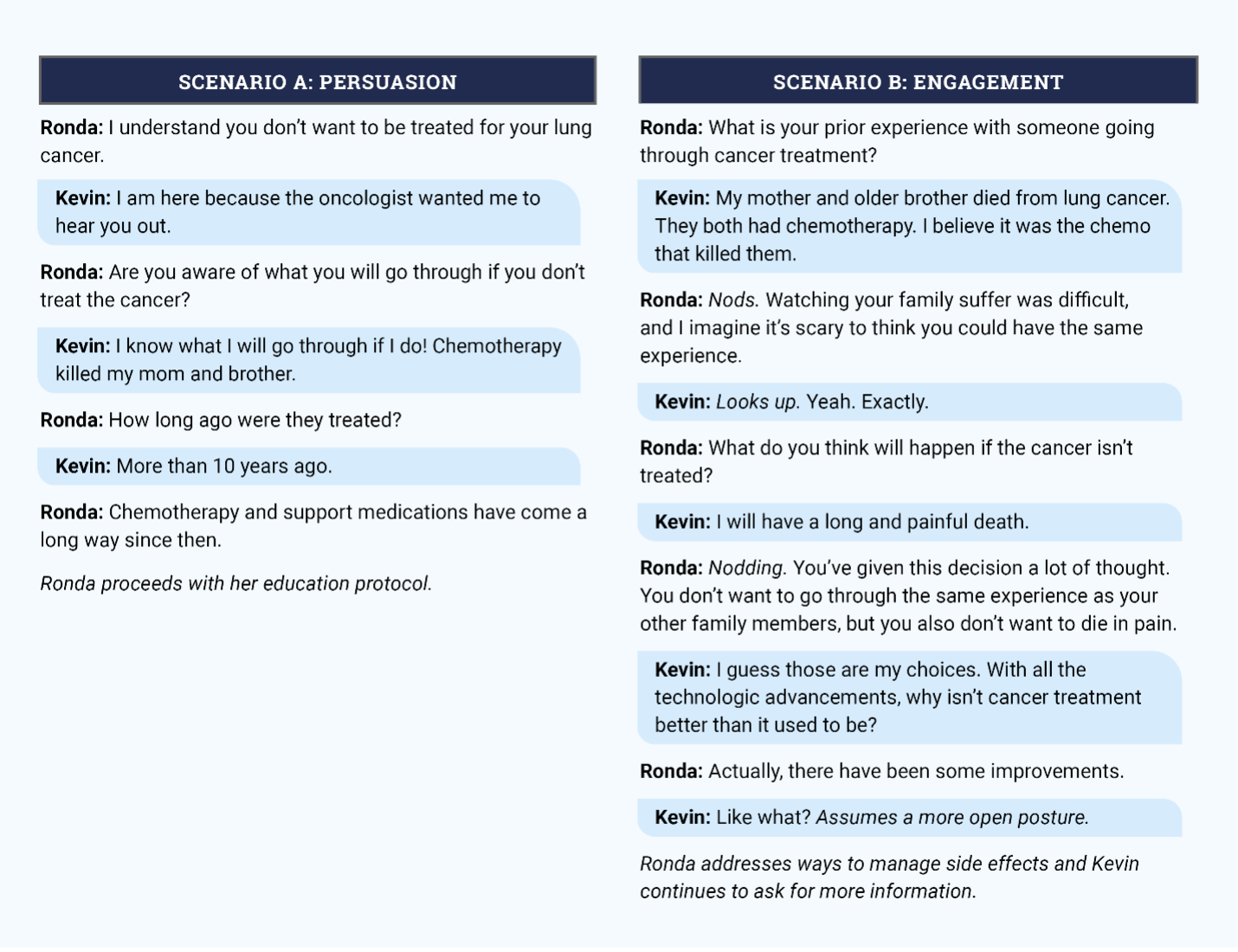- Nursing Education (http://dev-voice.ons.org/topic/nursing-education)
- Care Coordination (http://dev-voice.ons.org/topic/care-coordination)
- Oncology Nurse-Patient Relationship (http://dev-voice.ons.org/topic/oncology-nurse-patient-relationship)
- Clinical Practice (http://dev-voice.ons.org/topic/clinical-practice)
Add Meaning to Your Communication With This Key Element
Meaningful communication involves more than just words traded between people. By asking open-ended questions, affirming a person’s strengths, offering reflections, and providing a summary of the conversation, you can engage others in meaningful conversation.
Engagement is key to forming meaningful conversations (https://www.guilford.com/books/Motivational-Interviewing/Miller-Rollnick/9781609182274). Sustaining a conversation through compassion and curiosity enhances engagement (https://psychwire.com/motivational-interviewing). However, using authority and expertise to persuade someone to do something they don’t want to do leads to disengagement (https://psychwire.com/motivational-interviewing), withdrawal or defensiveness, and feeling disrespected.
Ronda, an oncology nurse educator, is told that Kevin is refusing chemotherapy after being diagnosed with early-stage lung cancer and is encouraged to help him accept treatment. In scenario A, Ronda uses her authority and expertise to persuade Kevin to agree to treatment, whereas in scenario B, she remains curious and neutral, allowing Kevin to find his own path through his resistance.

